This piece was originally published on the Business Fights Poverty blog by Johan Rockstrom of the Stockholm Resilience Centre.
The global economy is under pressure from the planet. This year, falling oil prices and stagnant growth, especially in emerging markets, is coinciding with extreme droughts and floods triggered by one of the most powerful El Niño events in the past 50 years. The severity of this naturally occurring shock is amplified by global warming, which has now reached a very worrying 1 C above pre-industrial level, the warmest point since the last Ice Age 12,000 years ago.
Unfortunately, social and economic shocks triggered by climate change are now a fact. They affect all industries and sectors, but most immediately and directly affect businesses whose supply chains depend on outputs from water, land and ecosystems.
Now, businesses, especially those in the agro-food industry and energy sector, have two strategic reasons for embracing sustainability. First, that planet Earth is sending invoices back to economies, putting businesses at risk. Second, that the political leadership in the world has now, with the recent launch of the Sustainable Development Goals and the COP21 climate agreement reached in Paris, provided a roadmap towards a transformation to global sustainable development. How can businesses do this?
1. Recognizing the true cash value of natural systems
This will be key for businesses wishing to future-proof their operations. While clean water and fertile soil may have seemed free and plentiful in the past, this is the time for businesses to explicitly value such services and to contribute to their preservation. In Kenya, for example, businesses such as Coca-Cola, East African Breweries, and utility companies have entered into an innovative partnership to protect the land and water resources they depend on. The Tana river basin, which drives half of Kenya’s hydropower-generated electricity and provides 95 percent of Nairobi’s water, is also one of the country’s most agriculturally productive areas. But, heavy rainfalls carry top soil from farms and into the river, filling it with sediment and jeopardizing water and energy supplies downstream. To make sure that soil stays put and water keeps flowing, businesses, farmers, conservation groups such as The Nature Conservancy, together with the government have launched the Nairobi Water Fund. Downstream water users will pay upstream “guardians” to protect the upper watershed; the guardians will implement strategic measures to conserve soil identified through research, including by the CGIAR Research Program on Water, Land and Ecosystems (WLE), such as tree planting along river banks or terracing on very steep slopes.
2. Managing risks beyond their own value chains
Messing up your own backyard can have catastrophic consequences for a business’s financial viability. This became abundantly clear to a major food and beverage production company in India recently, when scientists from WLE pointed out that five of the company’s eight factories are located in areas affected by water stress, calling into question the viability of business operations. The days of mitigation are over, and the private sector, as well as all other sectors, must seek out new strategies for integrating durable economic growth.
3. Thinking Transnationally
Sustainability is not confined by borders. Transnational thinking will be a prerequisite for thriving businesses. Climate change, water management, biodiversity losses and other such issues exceed boundaries and call for inclusive and integrated solutions. In the Greater Mekong region, for example, an ongoing hydropower boom is increasing competition for resources across the entire region in Lao PDR, Cambodia and Vietnam. Power generation requires water, yet so do agriculture and fisheries. Environmental scientists, including from WLE, are proposing solutions that can help businesses balance these demands, such as designing alternative fish passages through dams that allow fish to migrate up and down the Mekong River tributaries, meaning biodiversity is better protected, and fishermen and women are able to continue to catch fish.
4. Embracing the circular economy
Recycling and re-using waste makes sense when supplies are stretched. For example, human waste is generally considered a nuisance. Yet plants thrive on safe pelletized fertilizer produced from human waste. And it’s cheap too, potentially undercutting chemical fertilizers. Pilot projects converting muck to marketable compost are springing up across Africa and Asia. In Ghana for example, private-public partnerships are testing different business models for turning waste resources (solid waste, fecal sludge and sewage) into marketable products (fuel briquettes, co-compost and African catfish). Not only does this solve a pressing waste problem for rapidly urbanizing countries, it creates jobs and reduces dependency on costly imports.
5. Factoring in environmental costs when measuring business performance
This can strengthen business decisions by giving visibility on long-term risks and opportunities. Tools developed by WLE scientists can support investors by mapping water risk, ecosystem service provision and the environmental impacts of different investment scenarios. These tools can also support the insurance industry by quantifying the role of green infrastructure in reducing risk to insured assets, meaning that businesses that invest in protecting natural resources can potentially consider reduced insurance premiums part of their return on investment.
Science supports smart solutions
Adapt or die? This is the question The Economist’s recent Sustainability Summit sought to answer. Figuring out how to best invest in sustainability is undoubtedly one of the biggest challenges global businesses currently face. As the examples above illustrate, research programs can provide resources, tools and knowledge that can help the private sector make the transition, while safeguarding the planet. Meeting the sustainability challenge will be no easy feat, but smart businesses stand to gain.




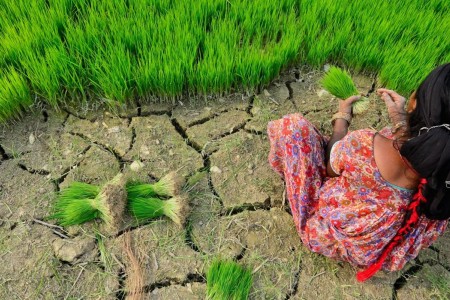
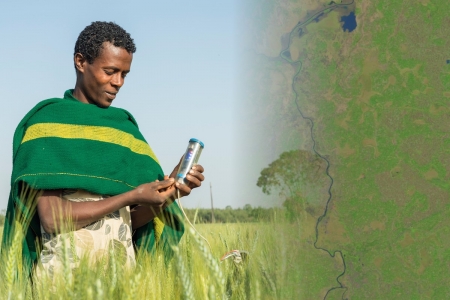


/index.jpg?itok=EzuBHOXY&c=feafd7f5ab7d60c363652d23929d0aee)


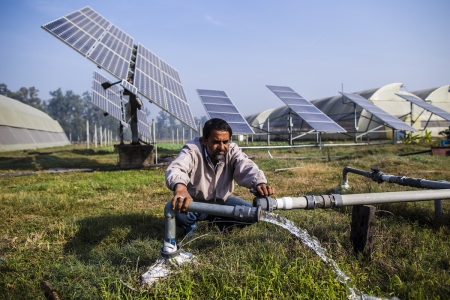

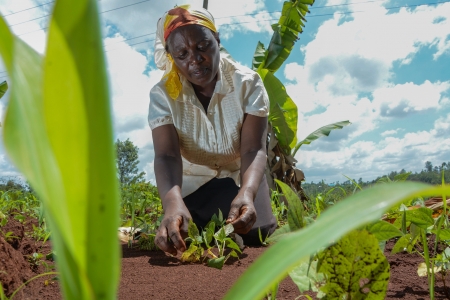





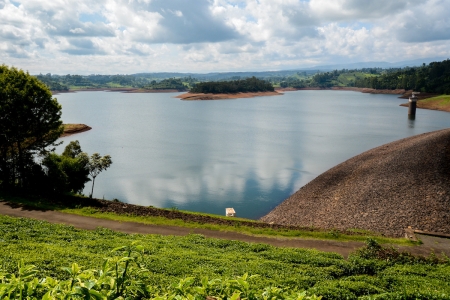
Comments
Sir, With so much data and surveys and apprehension about ills of groundwater use in agriculture and it's governance in most parts of India is not a proper shape. It is depleting and deteriorating, shall create actuate shortage of drinking water. In such situations how to obtain sustainability is a real problem. Any way out sir.
I think number 4 is of utmost importance and it would be a great start for all of us. As my field of work demands it I have been closely observing its effects on land and plant life and I have been strongly recommending it to any of my clients. You've guessed it - I'm a gardener for a living and there is nothing more efficient than recycling waste when it comes to it. There are not many familiar with how valuable their "green and brown" kitchen waste can be for the soil in the garden. I hope you did not order them in way of importance or priority, correct? It's a great idea-suggestion post nonetheless. I completely agree with the rest of the list and your reflections.
Regards, Steward Blake @ https://www.allansgardeners.co.uk/garden-maintenance/